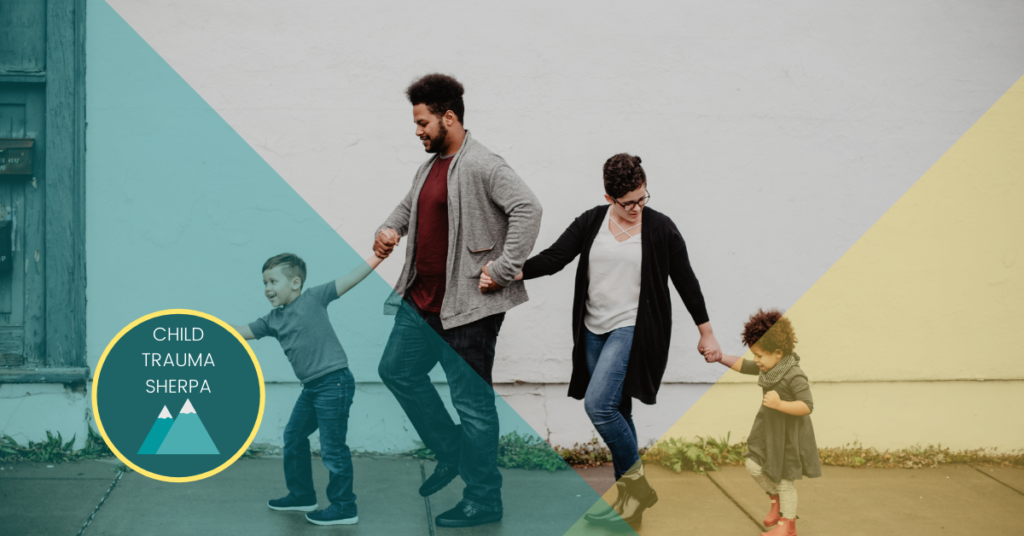8 Tips to Help Your Adopted Child Heal from Past Trauma
It is safe to say that all adopted children have gone through some trauma in their early years, whether it was through neglect, abandonment or abuse. This repeated exposure to trauma means that kids will experience being in a constant state of “fight or flight.” Being in this constant state of stress actually results in a real brain injury. Fortunately, the brain is able to heal itself at least up through the age of 25. This means that there is hope in helping your child heal from their past traumas.
While each family’s journey toward healing will be unique, there are some keys that will help you on that journey. Here are my top tips to helping your child heal and learn to have healthy relationships.
1 | Learn New Ways of Parenting
One thing that you should always keep in mind, and that is key to every other tip here, is that many of the usual responses parents and society have to poor behaviors can sadly retraumatize your adopted child with trauma. This means that you need to be open to new ways of parenting. This mindset shift can help you learn to parent your adopted child with trauma in a way that promotes healing.
2 | The Problem with Consequences
Most children with trauma do not respond to implications, good or bad. This means that issuing a series of penalties or consequences will not help your child heal. Instead, learn new ways of disciplining your child. For example, rather than telling your child “you are bad,” tell them their behavior is bad. Offer stable and non-emotional responses to their poor behaviors as emotional responses can cause you to misstep, or worse, retraumatize your child. To learn more about dealing with bad behaviors, read my blog on ways to discipline your adopted child with trauma.
3 | The Role of Stress and Fear
Children with trauma learned to mistrust or to be fearful of the adults in their life. Because they were constantly experiencing trauma, they were in that fight or flight response all of the time; they were in a constant state of fear and stress. Keep in mind that children with trauma can be particularly sensitive to stress, so their reaction may be more visceral than a child without repeated trauma exposure. As a parent, it is your goal to create a safe environment for your adopted child with trauma. Show them unconditional love to help them learn to trust you. Also, learn what triggers their stress, then create an environment that avoids those triggers as much as possible.
4 | Reduce External Sensory Stimulation When Possible
Not only can children with trauma be sensitive to stress, but they can also be sensitive to external stimuli. For children with trauma, even large family gatherings can be overwhelming. You might also consider decreasing television usage or the number of children coming over to play. When overwhelming situations are unavoidable, help your child prepare by speaking to them about the event or situation. During the event, be sure to keep your child close or to keep an eye on them and watch for symptoms of stress or a feeling of being overwhelmed.
5 | Be Patient, Give them Time and Always Show Unconditional Love
Love, patience and time are the three key ingredients to helping your adopted child heal from their past traumas. Always show unconditional love no matter their behavior and be patient with them. Also, give them the space to heal from their trauma on their own timeline.

6 | Parent Where They Are
It is not uncommon for children with trauma to behave several years younger than their actual age. This is okay! Trauma can cause delays in learning, connection and behavioral control. Rather than trying to parent your child where they are by their age, parent them where they are developmentally.
7 | Create a Support System
Helping your child heal from their past traumas takes an entire team of people. This team can include educators, IEP consultants, behavior supports, psychiatrists, church or community leaders, extended family and even friends. What is most essential is that everyone in your support system must be on the same page or little to no progress in healing will occur.
9 | Self-Care is Essential
Don’t forget to care for yourself so that you do not experience burnout or stress. Stress and exhaustion can cause us to react too emotionally, or worse, lash out. Have a self-care routine that works for you and stick to it. Also, remember to allow yourself some grace. This journey is just that–a journey! There will be a learning curve for everyone involved in the healing process.
Conclusion
Every family that is dealing with child trauma has many struggles and frustrations. By creating a safe and loving environment for your adopted child, you can help them heal from past traumas, learn to trust, and thrive moving forward. Remember, you are an amazing parent with a great child! Taking these actions myself, I have seen striking improvement in all areas for my children with trauma.

